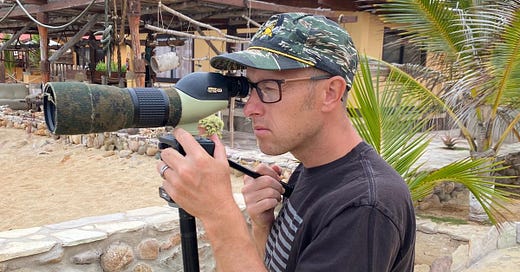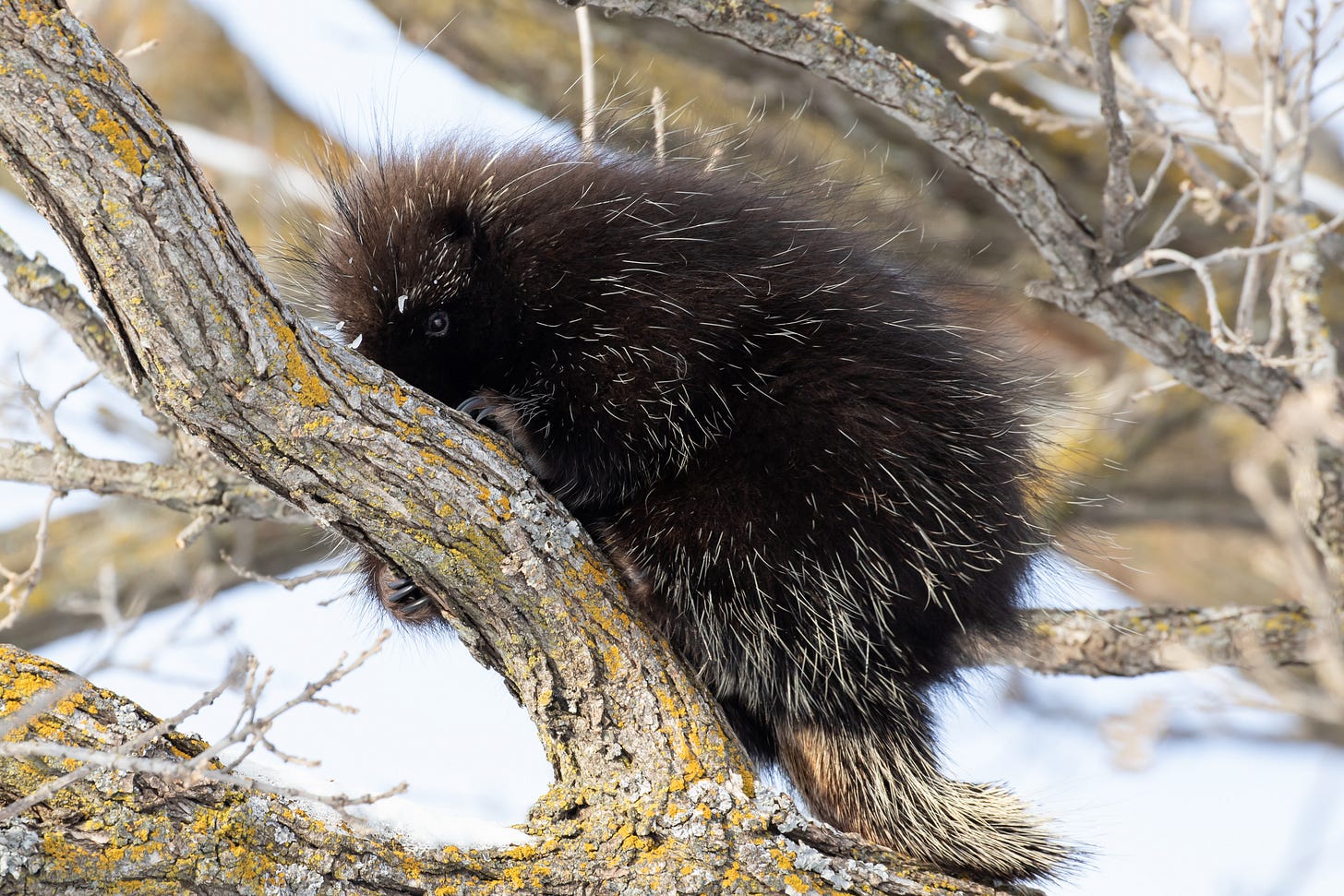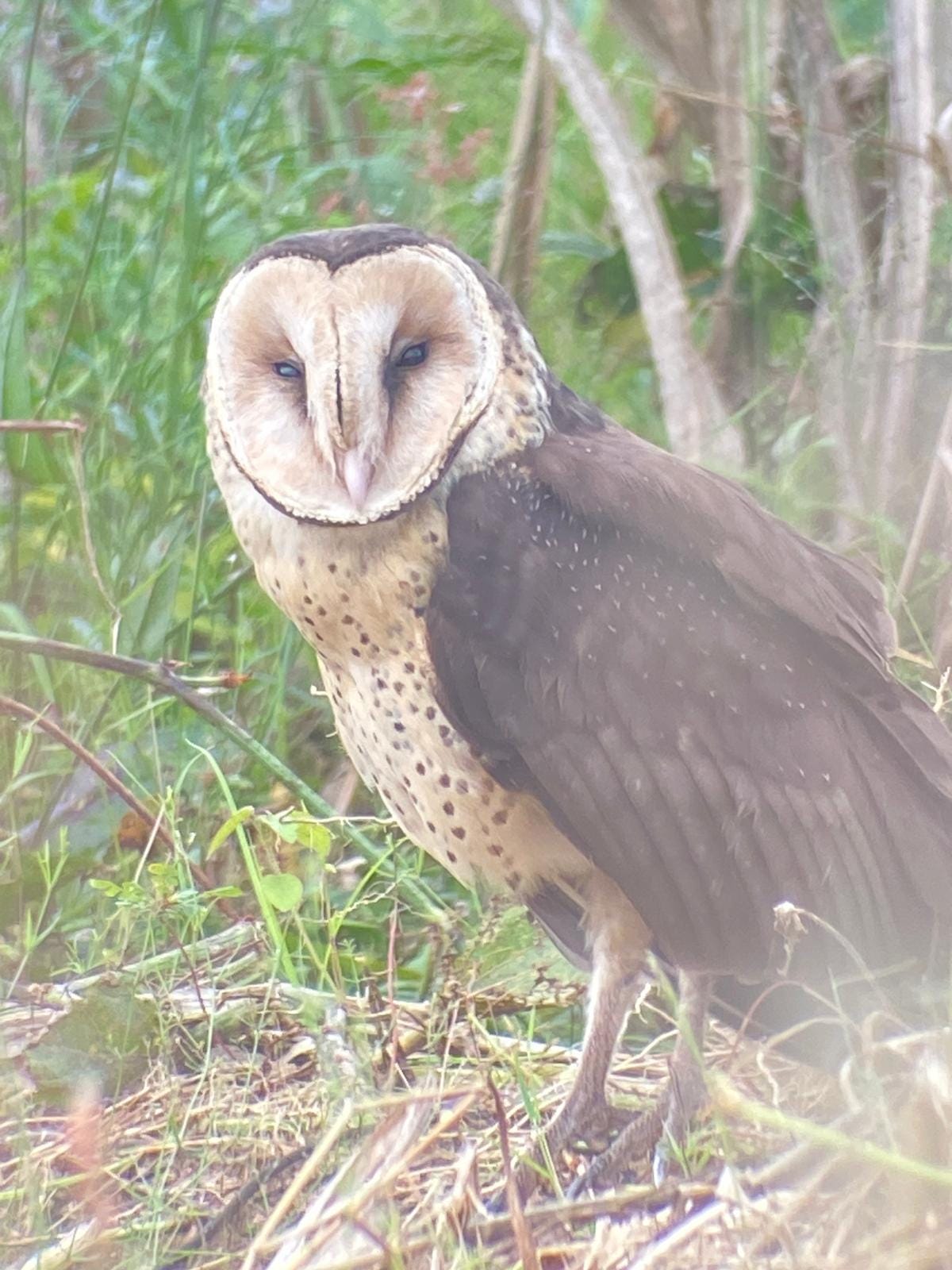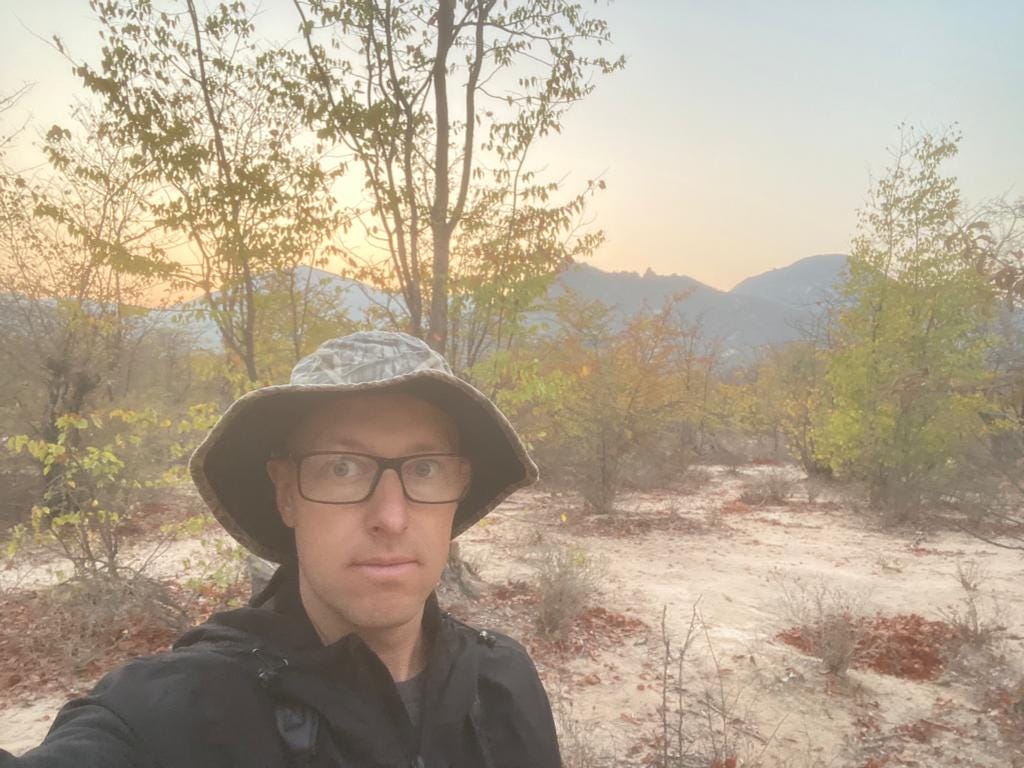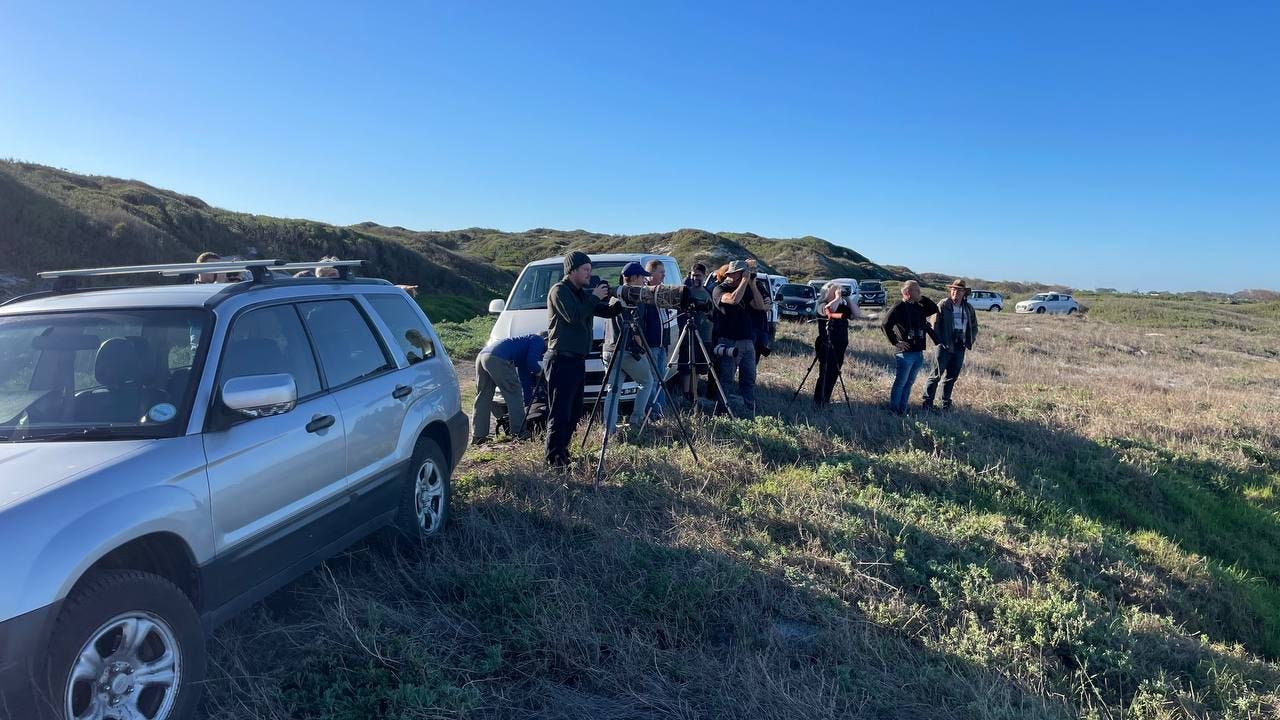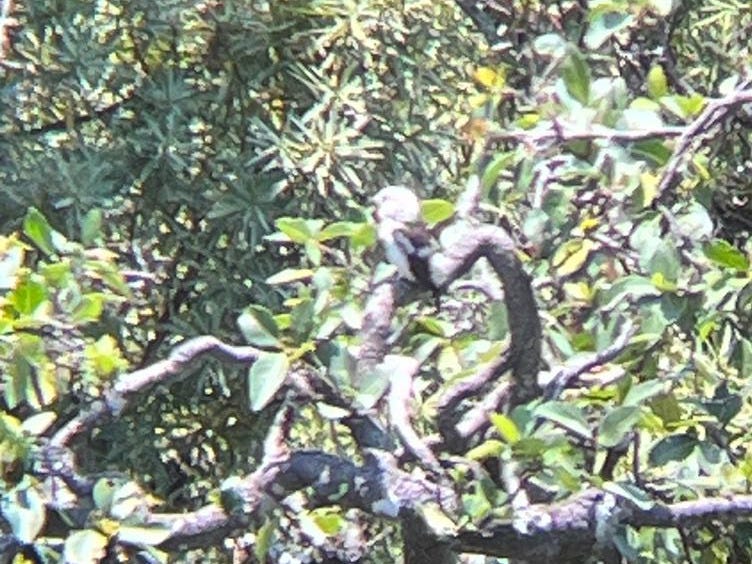prescript: first, as a reminder, my book comes out on april 21 and you can already preorder it. second, this is a eulogy and personal essay dealing with the controversial subject of christian missionary work and the violent death of my good friend. it makes statements that may upset readers. i ask you to offer some grace, if you can.
-
beau and i were nothing alike. he was a father of five, a cop and real estate agent who upended his comfortable minnesota life to serve jesus as a missionary in angola. i am a childless nonbinary jewish new york leftist. yet we both liked birds, which sustained our long, close friendship.
i recently learned that beau was murdered in angola, allegedly in circumstances too lurid to discuss here. but i knew beau differently from everyone else, and he shaped my worldview—maybe we shaped each other’s worldview—in a way that few other people have. i have probably told all of my friends about beau at some point. so i wanted to write something about him.
beau and i only met twice in person. each year around christmas, i visit my in-laws in northwestern minnesota. and around the same time, the national audubon society organizes a global christmas bird count where community scientist volunteers survey the birds inhabiting a 15-mile radius around a center point. in 2018 i emailed nancy, the compiler of a count in northwestern minnesota, and told her i was a newer birder with basic bird identification skills who was eager to participate. she paired me with beau and she hoped we’d get along.

it didn’t look like we’d get along, at first. i parked my rental car behind a diner and hopped into his car’s passenger seat, his son in the back. i thought i’d had experience with minnesotans from my in-laws, but i could barely talk to beau. he spoke in a thick minnesotan accent with a deliberate cadence, always pausing after i finished my fast city kid rambling to think before constructing a short response. often he wouldn’t respond at all. i thought he hated me.
we drove slowly around town, mostly in silence, stopping at a patch of weeds, a pond, some bird feeders. he paid more attention to his son, who eagerly noted every sign of deer. but beau was a far better spotter than me—never before had i seen someone turn specks into species from a moving car like he could. it was a skill he learned while on police patrol duty, he said (silence again, this time from me). but then he rolled down the window and asked me what i was hearing (american goldfinches and a white-breasted nuthatch). no one had confidently trusted me to identify birds like that, and i think i told him as much. he lost his high-pitched hearing from years of hunting and he respected my inexperienced ears as preferable to his poorly functioning ones. we went on like that, him identifying birds by sight and me by sound. it broke the ice and we got chatting. i picked up that he was more interested than off-put by my city energy—and i realized that he enjoyed my company.
the drive turned to hijinks as we warmed to each other. beau pulled over to inspect a dead grouse—he would have kept it if it was still steaming, he said. he asked if i thought he was a redneck. i responded that i’d taken taxidermy classes and didn’t care. he taught me how to track deer. he explained how to identify a northern shrike from a moving car (they drop before they fly), allowing me to find my coveted “lifer,” or first-ever personal sighting, as he sped down a country road. he even broke his cardinal birdwatching rule—he never chased rare bird reports if they would be lifers—so i could see a northwestern bird called a varied thrush that had traveled far from its usual home and ended up in a frozen minnesota driveway.
i understood his perspective as a duck hunter, which i don’t think he expected. to him, shooting a rare duck was the same as me photographing a rare duck. he really wanted to shoot a tufted duck, a vagrant from europe rarely seen in north america. “as long as you’d let me see it first,” i probably told him. after all, like my hunting in-laws, it was clear that beau did more conservation work than the average birder.
he took me to his house to introduce me to his family, the kids kinder than any gaggle of children i’d met prior. he rummaged through the freezer. have i ever eaten snipe before? no, i told him. snipes are a coveted bird to new york city birdwatchers. “well, there’s at least one snipe in this,” he said, holding up a bag of shredded meat, mostly ring-necked duck (another uncommon bird for brooklyn!). he made me a sandwich, and to this day, i tell people that snipe is the most interesting bird i’ve ever eaten.
at the end of christmas bird counts, there’s often a compilation dinner where you report your sightings as a group. beau couldn’t make it, so he dropped me back at my car and i headed there alone. i walked in and introduced myself—i was the new yorker. without missing a beat, nancy’s husband bill said “huh… you say you’re from new york… but you sound like us!”—like a day spent with beau.
beau and i didn’t speak regularly, at first. but a month after my trip, a little brown bird showed up at beau’s feeders—a european species rarely seen in the united states called a brambling. and i was among the first, if not the first person he texted. i returned to minnesota the following year, and once again participated in a northern minnesota christmas bird count—with my teammate beau, of course. we didn’t really count the birds this time. rather, beau showed me around his favorite haunts. we found a porcupine atop a tree in a farm field and he encouraged me to sneak over to photograph it. we hiked to a spit of land between two ponds with a single tree where migratory birds concentrate on spring mornings—he’d seen a dozen species of colorful warblers there once. we watched a bald eagle chase a duck relentlessly, and a great horned owl hunt in the dusk light above a frozen field.
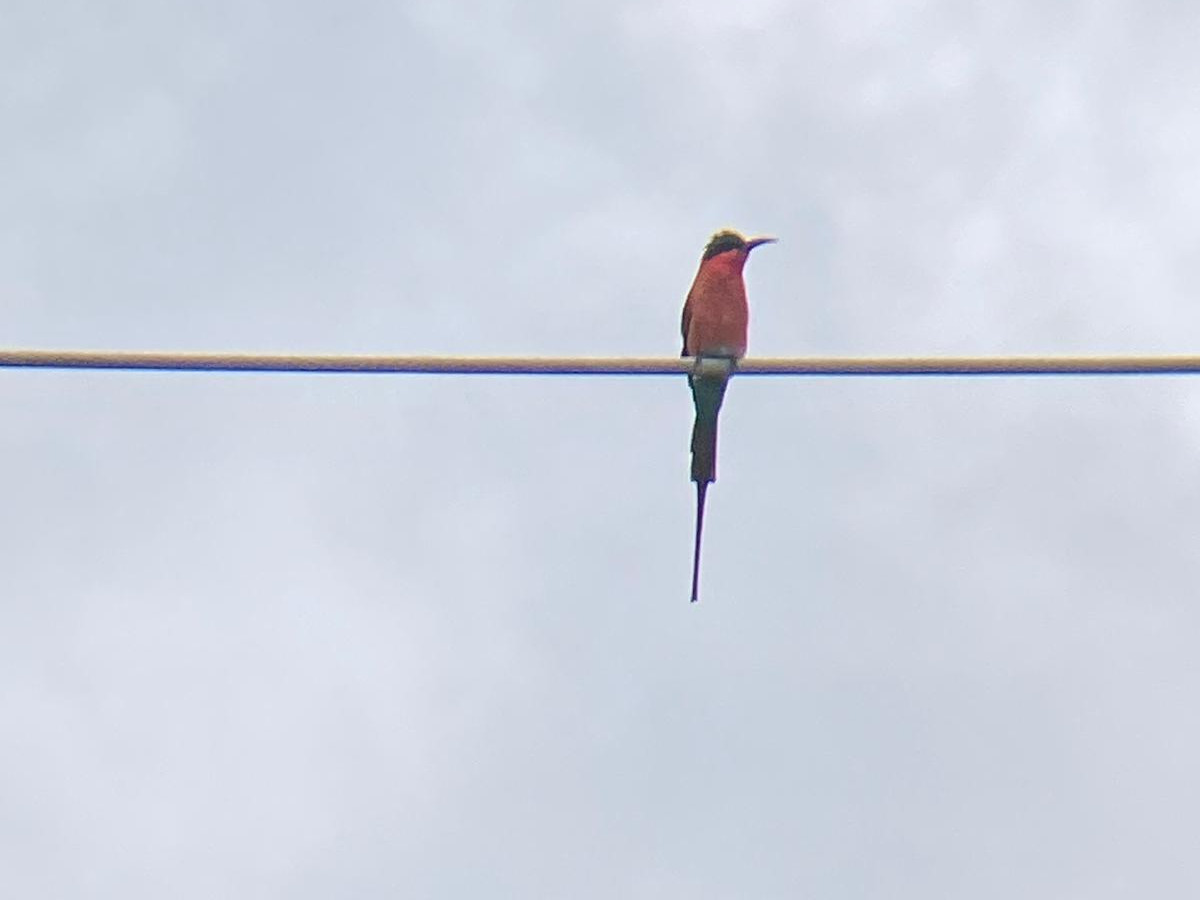
that day, beau revealed that he’d soon upend his life to move to angola as a christian missionary. silence from me again. had he told me the previous year, our friendship would have ended at the end of the day. as i saw it, missionary work is a colonialist effort responsible for whitewashing cultures, infecting indigenous people with disease, and sowing the seeds of imperialism. just a year before, i’d been disgusted by the story of missionary john allen chau, who was broadly condemned after dying at the hands of uncontacted people while trying to spread the gospel. but now, after a year of companionship, i was compelled to consider things from his perspective. beau was sure he’d be making the world a better place. he’d bring binoculars so the angolan children could learn to identify birds. he’d build their appreciation so that the kids could help conserve the under-studied wildlife of a country amid rampant land clearing. i’m not sure he even mentioned christianity or the gospel. i listened, gave my tepid support, and prodded for the details of angola’s birds.
once again we stopped at beau’s house for lunch. feeding a family of five children isn’t easy, so they had snack lunch. they cut up some summer sausage and cheese and crackers and laid it out on a wooden block and the kids grazed as they came and went. during the first covid winter, brittany and i had snack lunch for our christmas meal, inspired by beau’s family.
covid delayed beau’s departure for angola, and our conversation slowed. but as he prepared to go, i started receiving regular texts and he’d call randomly to ask questions—what affordable binoculars should he bring? how does he use the ebird app? keeping track of bird lists is a central task of intense birders, including lists of birds seen in one’s life, in specific places, or in specific years, and ebird makes this process easy. but beau was old fashioned and kept paper lists, so i helped him set it up. he grumbled mostly, but eagerly recounted past experiences encountering rare birds in minnesota like the lewis’ woodpecker as he entered his old data. we started speaking more frequently than we’d ever communicated before. i bought him a hat from the bird collective website for christmas that year.
as his trip approached, i struggled to fathom remaining friends with someone on a christian mission and thought angola might spell the end of our friendship. but in january of 2022 he sent me a screenshot of an apple note with descriptions of angolan birds he saw, and circled ones he needed help identifying. when he was in the field he took as many notes as he could, then he’d look for birds that matched his notes in his paper guide. but the book’s illustrations weren’t good, so he’d use google or me to confirm the identity. he could only identify half of the birds he observed or less, which frustrated him. i asked whether he had heard of the merlin app—it has packs of bird photos to download for a specific region, and uses artificial intelligence to identify birds by photo or sound. the sound id was of no real use in angola, but he got along well with the photo guide and photo id.
ebird and merlin have a way of transforming a birder. with endless knowledge at your fingertips and top birder rankings, you might become competitive. how many birds have you seen in your life, and how do you see more? how many have you seen in your home country? your home county? beau sent me updates about his lists. he’d only seen two or three hundred bird species prior to his move, and now he was racking the lifers up. he was rising the ranks of angola’s birders. he was taking trips around the country and birding new places whenever he could. he texted me about everything—first, screenshots with lists of species he’d seen, then blurry photos he’d taken with his cell phone through his binoculars. in three years, i think i got an update about every new bird he saw. i told him that he was probably going to make some huge discovery. “can’t wait until i get to chase beau’s sparrow,” i said. we’d jokingly compete for who’d seen more birds. i pulled ahead with my regular birding trips. but he’d retort with countless stories of birds that only he and a few dozen other people on earth had seen. he’d call them “mandelbaum lifers” to entice me.
i don’t accept missionary work broadly as something other than a self-satisfying means of forcing western society and religion onto people without their best interest in mind. but beau was different. beau sent me a message in march of 2023 that he and others were attempting to reintroduce the near-threatened cape buffalo from namibia to a missionary farm property in angola where they’d be protected. beau had never asked me for anything before, but he was passionate about the project and asked if i wanted to help. i skeptically donated several hundred dollars—then received near-daily reports of their progress transporting the animals until the herd of nearly 50 were successfully released at the farm, with just a single buffalo casualty. other times, beau would lament about finding rare birds in spots, and then returning and seeing the woodland cleared—laws ban the clearing, but there’s little enforcement, he said. he’d been working on a proposal to buy forest for the ministry and steward it to protect the wildlife and continue seeing the birds he cared so much about.
the birding never slowed. he’d gone from identifying a fraction of the species he saw to finding mega rarities, county firsts, expanding the range maps of birds, birding places that no one had ever been before. each new spot beau visited, i’d get updates on his lifers and sometimes help identify the birds he was seeing. rare owls, colorful bee-eaters, furtive finches, secretary birds, he was excitedly sharing each new sighting while knowingly enticing me, too. there were entire regions of the country where no one had reported birds in ebird and he asked when i was going to come join him to be the first. the bird that cracked me was the white-headed barbet, more because beau didn’t see it after several failed attempts and asked for me to gather intel on the species from birders i knew who’d visited angola. mandelbaum lifers became more than just a joke, and beau began suggesting potential itineraries. i realized he was serious after he proposed dates for a 2026 trip and i agreed to visit. i was supposed to have started planning the trip around now.
i’ll admit, i wasn’t always the best at responding—i’m not great at responding to texts, generally, and sometimes struggled to understand beau’s intentions in keeping up with me. that is, until beau texted me: “Sorry I keep blasting you with bird stuff. You’re literally the only one who even pretends to care, so…” i realized that he wasn’t proselytizing to me or anything. sharing was just how beau showed he cared, and my earnest interest was a lifeline that allowed him celebrate wins in his otherwise extremely challenging life. and when i sent him something back, he’d always ask me more and share in my excitement. and so i tried to be a lot more intentional about sharing, too, and asking for him to share more. after all, i wasn’t pretending to care—beau was one of the most active birders in angola and updating me constantly on the most interesting, least-known birds in the world in a place where few other people were observing them.
i reassured that i wasn’t ignoring him and wasn’t annoyed. and i’m glad he didn’t stop texting, because later while he was visiting south africa, i was the first to receive the picture of a small brown and orange songbird he’d spotted—a whinchat he’d identified with the help of merlin. it was only the fifth time the north african and european species had been found in the country, and soon birders were swarming to see it. i couldn’t believe how chill he was—always was—upon finding something rare. but humility was a core virtue of his. even the whinchat, all he said to acknowledge its rarity was “it’s a lifer :)”
beau briefly returned to the united states last summer, and i got to hear all about it. thanks to merlin’s sound identification, beau was finding american birds he’d never seen before. in north carolina, the app found him a black-throated blue warbler, a bird that’s rare in minnesota and a coveted lifer for him. i was happy that once again i could be beau’s ears indirectly through the app.
we were supposed to meet up this past august so i could take beau birding in nyc, and when he couldn’t make it, he was going to try and send his 17 year old daughter bella who really wanted to see the city. i was sort of shocked when he asked whether i could give her room and board and protect her for a few days, and even more shocked when i asked if he had any restrictions for her. nope, he said—just the basics, no drugs, no sex, no tattoos. she’s practically a woman enrolled in university and it was time for her to grow up, he said. i am pretty sure that beau knew i was not a prime example of a god-fearing sinless christian, but this was emblematic of how he treated me, and i assume how he treated others—innately trusting of the good in those who he cared for. the trip ended up falling through, but i told him our door was always open to him and his family. (still is!)
beau and i spoke almost every week after. he was itching to return to angola and was birding as soon as he got off the plane. he was lucky enough to accompany a fancy american tour group around the country and see a lot of birds—including the white-headed barbet he and i had talked so much about. unbelievably blessed to have had the opportunity, he said—and he let me know that he was ready to show me all of the angola endemics on our trip. we kept chatting as always until late last autumn when i sent him a photo of a great gray owl i saw, to which he responded “I like great grays.” then i got busy with work travel and went on my antarctica trip and he didn’t text again. i didn’t think anything was wrong—we’d gone a few months without talking before—but i noticed his silence the other day, just before nancy reached out and shared the news of his tragic passing shortly after he and i had last spoken.
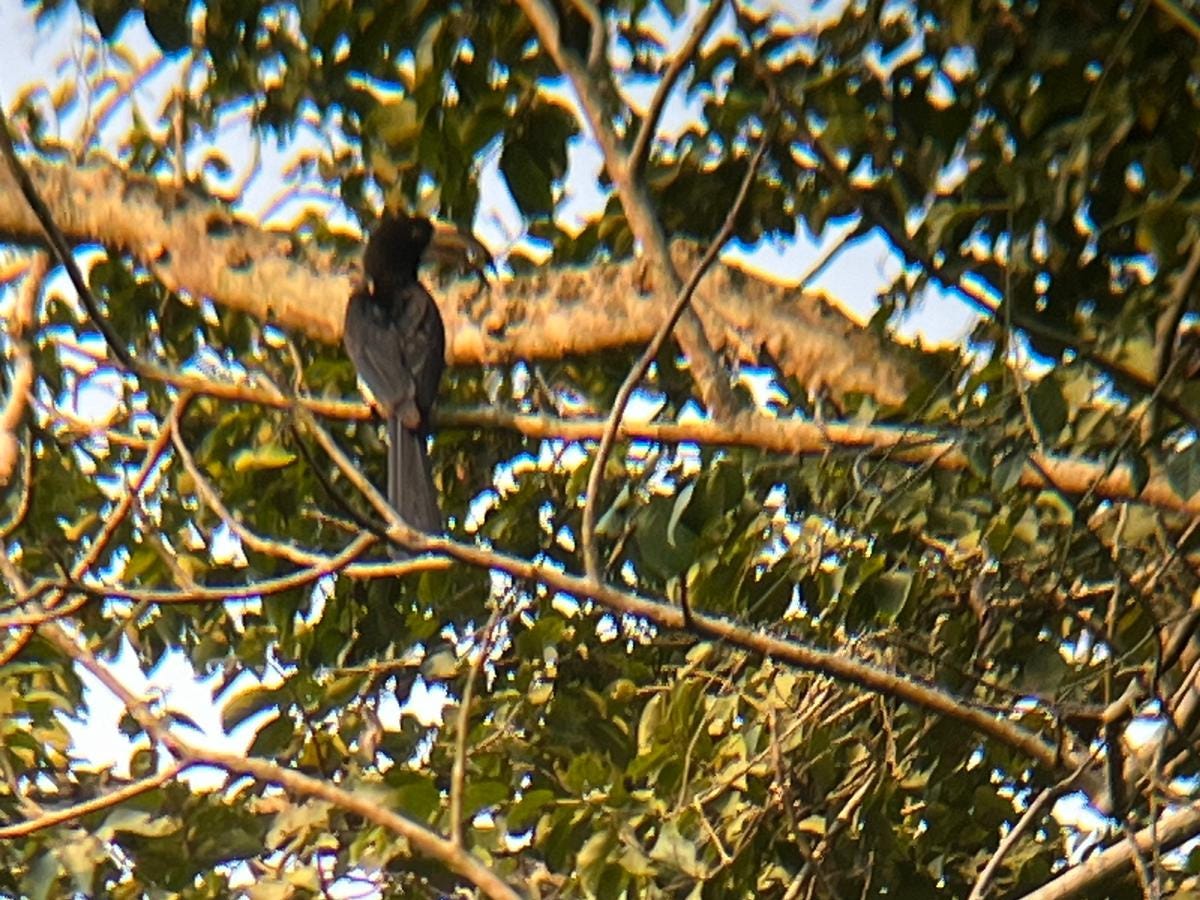
as it stands, beau has submitted the highest number of ebird checklists of anyone in angola, and has seen the third highest number of species at 552. his 1000th “lifer” was the congo pied hornbill, which he saw on the tour back in september. once, i suggested that he was single-handedly increasing the knowledge of angola’s birds, just by living there. “yes. I have seen several species that are not supposed to exist at all in angola,” he told me. “and recently almost every ebird report I make has at least one species that’s marked as rare.” in december 2022, he recorded angola’s first ebird record of striped crake, a shy water bird seen only 100 times ever by users of the ebird app—a bird “unlikely to be seen by those not expressly looking for it.” he found three of them—probably one of his most exciting finds. a week before he died, he posted a photo of the temminck’s courser—he was the first birder to observe the species in all of southwest angola, finding several places where they regularly occured in numbers.
of course, he reminded me that his purpose is spreading the gospel. the birds were just a bonus.
i’m thankful that i got to see a side of beau that no one else saw, and to have seen the world through the eyes of someone so different from me. and while i can’t say my opinions of christian missionary work are much higher, i can say that beau used the avenues available in his universe to literally give his life to build the world he wanted to see—in some ways, a world i also want to see, where humanity can prosper while living harmoniously with nature and wildlife. he permanently shaped the way i think about other people and about the core nature of what being a good person means in the context of someone’s circumstances.
i hope your white-headed barbets are still around when i get to angola, beau. wish you could be the one who showed them to me.
postscript: i won’t be answering any questions about beau or his life beyond my personal opinions expressed in this eulogy, and i ask that if you’re not directly related to beau, that you not reach out to me about his personal life. if you are related, i am happy to send you all of the photos he sent me.

